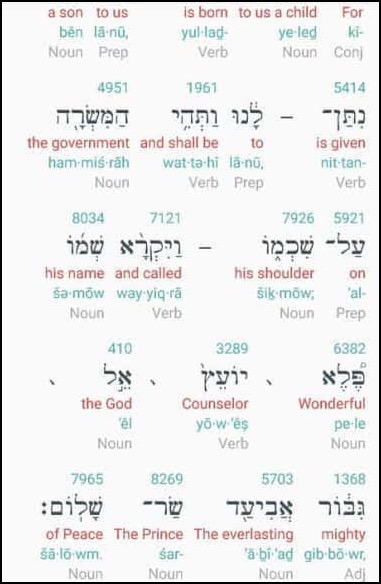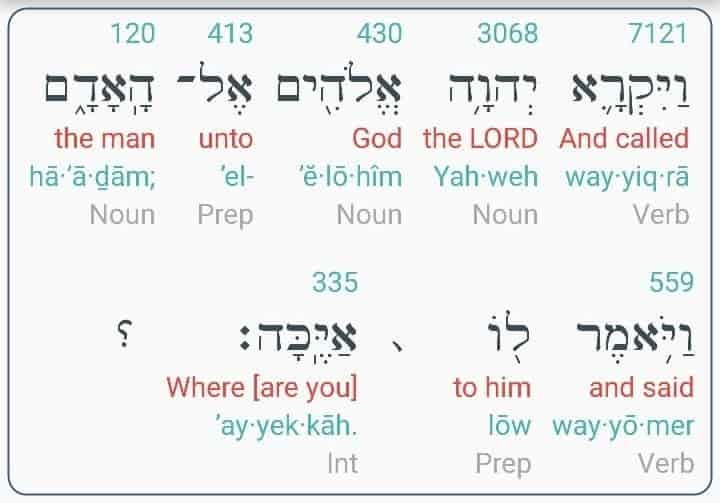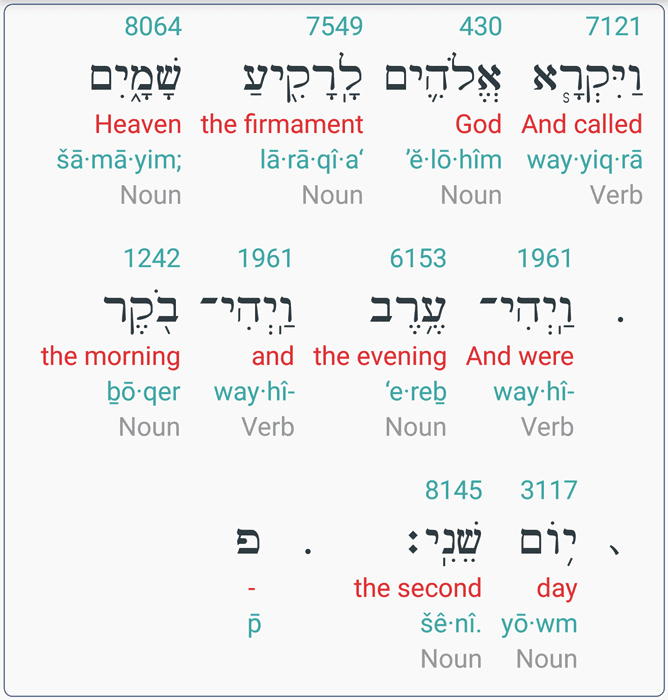Isaiah 9:6 Explained: Is Messiah The Mighty El?
By Chazaq EliYahu Yasharal
Isaiah 9:6 explained. In this post, we will reveal the truth about this controversial verse, which is hidden from most of us because of the biblical translations we have inherited.
Today, we move on to look at one verse that has deceived most who read the English language version of the Bible.
The verse in question, Isaiah 9:9, is one of the strongest arguments supporting the claim that the Messiah is the same as the Most High. In the KJV, it reads:
Isa 9:6 For unto us a child is born, unto us a son is given: and the government shall be upon his shoulder: and his name shall be called Wonderful, Counsellor, The mighty El , The everlasting Father, The Prince of Peace.
This verse is widely accepted as is.
However, what if I tell you that it is a great mistranslation that you can easily prove for yourself? Yes you, who don’t even need to know Hebrew. You can see the mistranslation just by matching the context.
Isaiah 9:6 Hebrew Translation
So let us look at Isaiah 9:6 in Hebrew and English.

Notice “and called” (verb) comes before the name “El” (noun) who called his name. In Hebrew, when a noun and verb are used in succession, the verb comes before the noun as you can see.
However, it is the opposite in English (noun comes before the verb).
Therefore, in translating into English from Hebrew, we have to flip it and place the noun before the verb. Let’s lay it out in the table below.
Isaiah 9-6
Difference between how Hebrew and English are written: placement of noun and verb.
|
English |
Hebrew |
|
and El (noun) called (verb) his name |
and called (verb) his name El (noun) |
Genesis 3:9 Hebrew /English
Now let us look at a similar verse to compare:
Gen 3:9 And Yehovah Elohim (noun) called (verb) unto Adam, and said unto him, Where art thou?
Now let’s see how it is written in Hebrew.

Again, we see the verb before the noun: “and called Yehovah “Elohim.”
However, if we go back to the English translation we see:
Gen 3:9 And Yehovah Elohim (noun) called (verb) unto Adam, and said unto him, Where art thou?
Isaiah 9:6 Inconsistent Translation
So in this case, the noun (Yehovah “Elohim”) is placed before the verb (called). However, if we compare how it is translated into English in Isaiah 9:6, we see an inconsistency: the verb is placed before the noun!
his name shall be called (verb) Wonderful, Counsellor, The mighty El, The everlasting Father, The Prince of peace (nouns).
Confirmation of Proper English Translation of Isaiah 9:6
Now let us look at a third similar translation to confirm what it should be (in the mouth of 2 or 3 witnesses, a thing is confirmed – Deut 19:15, Mat 18:16)

As we can see, the verb comes before the noun, so to translate it into English, it has to be reversed and the noun placed before the verb as is indeed confirmed below:
Gen 1:8 And Elohim (noun) called (verb) the firmament Heaven. And the evening and the morning were the second day.
Proper Translation of Isaiah 9:6
So here is a proper translation of Isaiah 9:6...
Isaiah 9:6 For a child has been born to us, a son given to us, and the authority is upon his shoulder, and the wonderful counselor, the mighty El, the everlasting Father (nouns), called (verb) his (Messiah’s) name, “the prince of peace.”
Yehovah (noun) called (called) his name the Prince of peace. All those titles/nouns (the wonderful counselor, the mighty El, the everlasting Father) were the titles of Yehovah, not of the child that should be born.
Because they are nouns referring to the same person, they should have been placed before the verb when translated into English.
Conclusion: Isaiah 9:6 Explained
There you have it: Isaiah 9:6 explained. This mistranslated verse has fooled almost all Christians worldwide.
In fact, on Bible Hub, there are 26 translations of this verse, and ALL translate it poorly, just as in the KJV (by keeping the verb before the noun, thereby causing a false English translation).
So many things are hidden from those of us who believe in the English language translation of the Bible as being inerrant. Big mistake! The original scripture is inerrant, not the translation.
The Bible did not say the following verse in vain!
Jer 8:8 (HCSB) “How can you claim, “We are wise; the Torah of Yehovah is with us?” In fact the lying pen of scribes has produced falsehood.
That is why Sha’ul said:
1Th 5:21 Prove all things; hold fast that which is good.
Prove everything. This verse is used to support the worship of the Messiah as Elohim. This verse, properly translated is by no means saying the Messiah is Elohim.